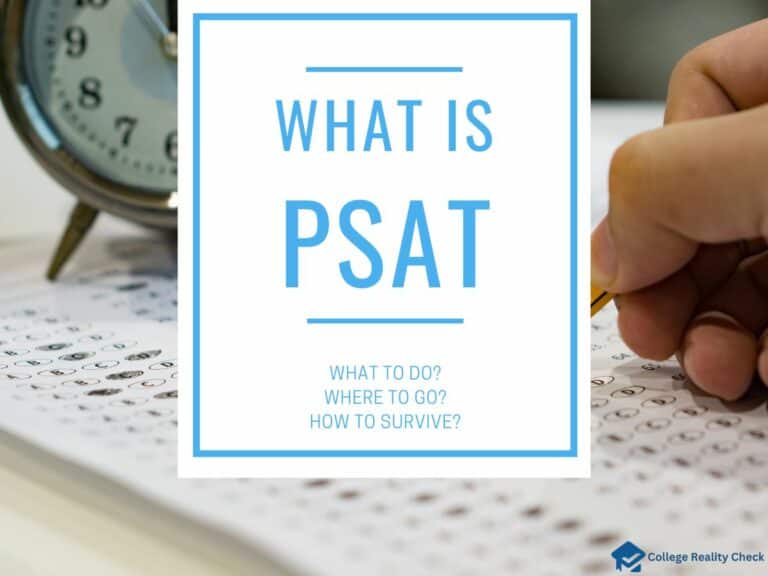Is It Possible to Raise SAT Score by 100 Points in a Week?
The last couple of years in high school are some of the busiest and toughest. Because of this, many students find that they don’t have enough time to study for the SAT to get their target score. If you are one of them, you may be wondering if getting additional 100 points on the SAT in just a week is a possibility.
It’s possible to raise a low SAT score by 100 points in a week. Getting familiar with the test format and strengthening weaknesses can make it happen. In contrast, raising an already high SAT score by 100 points in a week is hard as it requires learning new skills, which require more time.
You can only do so much in one week, especially if you have school, to raise your SAT score by 100 points.
It’s because of this why, generally speaking, you should start gearing up for the SAT at least three months before the test. Still, anything is possible, especially if you put your mind to it. If it’s a 100-point SAT increase in one week that you want, you should be willing to carry out everything it will take to make it happen.
Below are some things that you may try to raise your score. Read on if you are in crunch time and you have some admissions officers from selective schools to impress.
But before anything else, let’s answer this pressing question…
How long does it take to raise SAT score by 100 points?
It takes at least 40 hours of studying to get a 100-point increase on the SAT. The recommended hours of studying for the SAT should be divided into the number of days leading up to the test. However, one day before the SAT, it’s highly recommended for students to avoid studying and instead relax.
However, it doesn’t necessarily mean that studying for 40 hours in a week will raise your SAT score by 100 points.
The number of points you can get on the SAT by allotting 40 hours of your life to preparing in one week will depend on all sorts of factors.
One of them is the quality of your studying — if you are not taking it seriously and there are distractions around, then studying for 40 hours for the SAT in a week will probably be futile.
On the other hand, if you will do everything necessary to strengthen your weaknesses and improve your test-taking skills, too, it’s possible to increase your SAT score by 100 points by studying for 40 hours in a week.
And this takes up to another question that needs an answer…
Why is it difficult to raise an already high SAT score?
Raising an already high SAT score is hard because the test-taker has probably already scored near or at the top of his or her capacity. So, in other words, the test-taker has exhausted all available resources, and introducing further knowledge and skills, which could take months, would be necessary.
It’s no secret that the higher your SAT score, the higher your chances of getting admitted into selective schools.
Unfortunately, the chances of raising an SAT score that’s already impressive are usually low.
Students with low SAT scores probably answered a lot of easy questions wrongly. Studying enough before retaking the test can help them get easy questions correctly. They can keep on doing this until they are happy with their SAT scores.
On the other hand, students with high SAT scores probably failed to answer difficult questions despite performing at the top of their game because those questions were beyond their knowledge base.
Widening one’s knowledge base can be quite impossible in just one week — several weeks or a few months may still not be enough to make it happen. So here’s the deal with the SAT: it tests all the things you learned in high school, and not just the ones you learned last month, last semester or last year.
It’s due to this why, for instance, you may have a hard time turning an SAT score of 1450 into 1550, while you may have an easy time turning an SAT score of 1050 to 1150.
And this brings us to the heart and soul of this article…
How to Raise Your SAT Score by 100 in one Week
If you are not willing to study a lot, it’s unlikely that your SAT score will increase by 100 in just one week. On the other hand, if you are willing to do anything and everything necessary, it’s possible to achieve that feat. There is no guarantee that you will gain 100 additional points alright, but anything is possible.
Below are some of the things you may try to raise your SAT score in the shortest time possible.
Get to know the SAT test format
Some students get low initial SAT scores because of failure to study enough for the test. Then there are also those that get low initial SAT scores because of unfamiliarity with the format of the test itself.
This is when the importance of taking the SAT practice test comes in — it can give you a firsthand experience of taking the SAT, especially if you attempt to complete each section within the allotted time, just like when taking the real deal.
By familiarizing yourself with the SAT’s format, preferably many times in one week to add 100 points to your initial SAT score, you can lower test-related anxiety. Being anxious while taking the SAT may keep you from analyzing the questions very well and answering them correctly each time, too.
Work on your weaknesses
One of the nicest things about taking the SAT practice test multiple times is that it will help you establish which questions you answer incorrectly each time.
So, in other words, it will allow you to determine your weaknesses, the ones that are keeping you from achieving your target SAT score.
There is no need to search far and wide to find help with your weaknesses. That’s because the SAT practice test comes with answer explanations — it’s like having your own SAT test prep tutor at no cost!
Related Post: Can You Fake Your SAT or ACT Scores?
Devote enough time to studying
As mentioned earlier, you will have to devote at least 40 hours to studying if you want a 100-point increase in your SAT score in just one week.
Since it’s a good idea to spend the day before your SAT relaxing to give your mind a much-needed break, you will have to study for the test almost seven hours per day.
If you have school, this study plan will make the entire week completely busy. On the other hand, if you are on summer vacation, you will have no trouble studying close to seven hours daily until the day before the SAT.
Most SAT exams are administered one month apart from each other. If adding 100 points to your SAT score is the most important thing in the world as it will help you gain admission into your preferred college, it’s a good idea to prepare for the test for an entire month instead of just a week.
Related Post: Can You Pass the SAT Without Studying?
How Much You Can Improve SAT Score
According to the Educational Testing Service (ETS), the company that develops the SAT for the College Board, students can improve their scores by up to 300 points. The College Board also states that 6-8 hours of SAT prep can increase your SAT score by 90 points, but 20 hours of preparation may improve your score by 115 points on average.
However, it’s important to note that individual results vary and depend on factors such as dedication, time spent preparing and starting scores.
The good news is that having the willingness to work hard for at least 40 hours a week may help you add 100 points — or close to 100 points — to a previous SAT score of yours in one week.
But if you want to increase your chances of raising your SAT score by 100 points or more, take the SAT some other time as one may not be enough.
When can to take the SAT for the first time?
The SAT can be taken at any given time from the start of high school. However, most high school students take the SAT for the first time in the spring of their junior year in high school. This gives them plenty of time to prepare for a retake in case they are not happy with their initial SAT scores.
Can colleges see how many times applicants took the SAT?
The College Board does not automatically inform colleges on how many times students took the SAT. However, some colleges may ask the applicants to submit their SAT scores from all test dates. Most colleges do not give any penalty for taking the SAT multiple times.
Disclaimer: The views and opinions expressed in this article are those of the authors and do not necessarily represent those of the College Reality Check.





